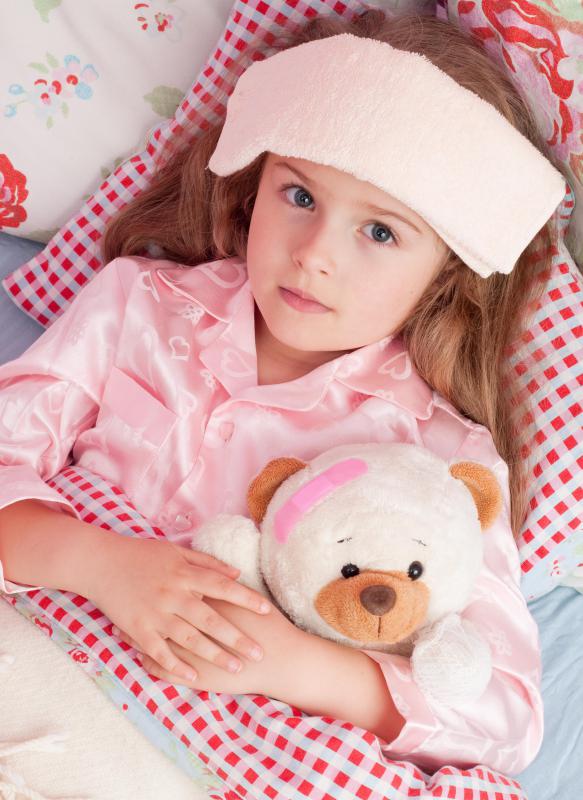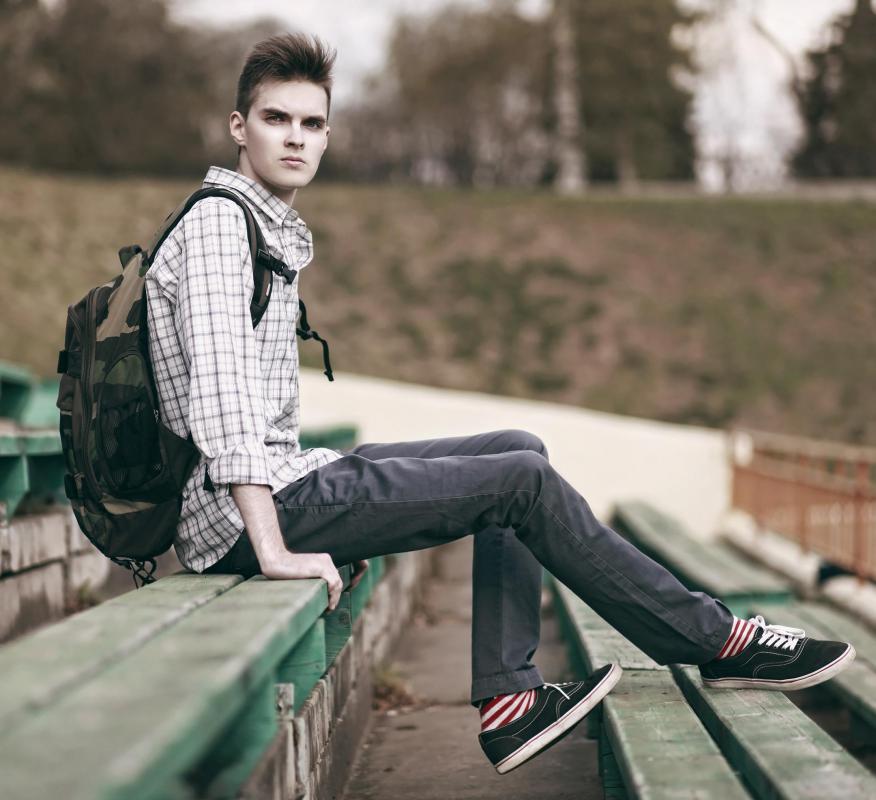At TheHealthBoard, we're committed to delivering accurate, trustworthy information. Our expert-authored content is rigorously fact-checked and sourced from credible authorities. Discover how we uphold the highest standards in providing you with reliable knowledge.
What is Didaskaleinophobia?
Didaskaleinophobia is a condition that describes a severe fear of going to school. It is sometimes referred to as separation anxiety, but some doctors argue that separation anxiety describes fear of being separated by parents for any reason, not just to attend school. These doctors maintain that didaskaleinophobia may be a type of separation anxiety.
Though primarily associated with children under age the age of 12, didaskaleinophobia can affect both children and teens and, in rare cases, may continue into adulthood. Children who suffer this condition may have many fears associated with going to school. Often they are fearful for themselves, that something bad will happen to them at school, but sometimes they are fearful that some harm may come to their parents or loved ones while they are away. Whatever the imagined threat, children who suffer didaskaleinophobia have fear reactions that are common to many other phobias.

Some of the behavior associated with didaskaleinophobia includes refusing to attend school, complaints of illness, and irrational fear for themselves and parents. In addition, the child may become overly reliant on their parents, and may throw temper tantrums when faced with having to leave home for school. Children who suffer this condition may also become withdrawn, avoiding contact with anyone other than their parents.

Most doctors believe that children who are unable to overcome their phobias are at increased risk of developing other types of anxiety disorders as adults. They may also be more prone to depression and other emotional problems. In spite of the risk these phobias can pose to children, few studies have been done to better understand and evaluate phobias in children. This may be because phobias are not common in children, but more often are suffered by adults or young adults.

Didaskaleinophobia is typically treated by counseling sessions aimed at helping children confront their fears. This type of treatment typically involves the administration of the school, as it could require after-school visits. During these visits, the child takes some time becoming comfortable with the school while having a parent along to help minimize fear. Each visit typically lasts longer and might include more exposure to other children and teachers.

In severe cases of didaskaleinophobia, medication might be part of the treatment program. These medications might include antidepressants or beta blockers. Many doctors believe that treating childhood phobias with these types of medications may carry risks of side effects that could be much more damaging than the phobia they are meant to treat. Antidepressants have been linked to suicide in children and teens.
AS FEATURED ON:
AS FEATURED ON:
















Discussion Comments
I had it as a child. I hid under beds and climbed on the roof to avoid the bus and missed well over 200 days. I now am 50 and have a 7th grade education. I'm not stupid, but even today, I get a sick feeling going into a school or building that reminds me of school, and yeah, I have a couple different anxieties.
I did have Didaskaleinophobia in the pre kindergarten but I got over it after I had a nervous breakdown in front of the whole school, including a couple of lunch ladies, policemen and women, plus the librarian and my soon to be friends.
I have seen the horrible things that school can do, and as a result I have a weak, rational form of this. I really want to educate myself and not go, but US law forbids that as my parents can't homeschool.
I think I have extreme Didaskaleinophobia. I'm homebound right now for personal reasons. But, the thought of going back to school makes me want to barricade myself in my room so I don't ever have to leave to go. P.S. I'm serious about the barricading myself thing.
I think I have Didaskaleinophobia. Whenever my mom and my dad wake me up in the morning, I'll lie saying that my head hurts or my stomach or I'm having an asthma attack or something like that.
I don't like going to school because I always think that my teachers would scold me because I can't understand any of our lessons because I'm always absent. And also, I don't like going to school because I don't have friends because I have social anxiety disorder.
Post your comments